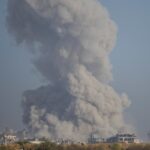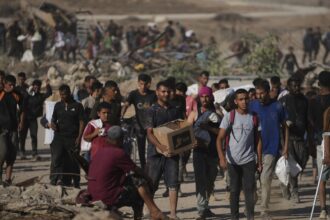In a pivotal diplomatic shift that has reverberated across international relations, Canada has formally recognized Palestine as a sovereign state, aligning itself with recent similar declarations from the United Kingdom and Australia. This coordinated wave of recognition comes at a particularly volatile moment in Middle Eastern politics, triggering immediate and forceful backlash from Israel’s right-wing government officials.
“Canada believes in the fundamental right of all peoples to self-determination,” stated Prime Minister Justin Trudeau during the announcement yesterday. “This recognition reflects our unwavering commitment to a two-state solution and lasting peace in the region, even as the path toward that peace remains challenging.”
The synchronized recognition from these three Commonwealth nations marks one of the most significant diplomatic developments in the Israeli-Palestinian conflict in recent years. Political analysts suggest this represents a growing international impatience with the stalled peace process and escalating violence in Gaza and the West Bank.
Israeli National Security Minister Itamar Ben-Gvir responded with inflammatory rhetoric, calling for what he termed the “crushing” of Palestine. “These countries have chosen to reward terrorism,” Ben-Gvir declared to reporters in Jerusalem. “Israel will not bow to international pressure that undermines our security and sovereignty.”
The Israeli government has formally recalled its ambassadors from Ottawa, London, and Canberra for “consultations,” a traditional diplomatic signal of severe displeasure. Meanwhile, Palestinian Authority President Mahmoud Abbas welcomed the announcements as “a victory for justice and international law.”
Foreign policy experts at the University of Toronto note that Canada’s decision represents a notable shift from its traditionally cautious approach to the Israeli-Palestinian conflict. Dr. Elaine Richardson, professor of international relations, told CO24: “This suggests a recalibration of Canada’s Middle East policy that may reflect changing domestic political calculations as much as international considerations.”
The economic implications remain unclear, though preliminary reports indicate potential impacts on trade agreements between Israel and the recognizing nations. The Toronto Stock Exchange showed minimal reaction, with analysts suggesting investors had already priced in the diplomatic development.
Opposition to the recognition has emerged from various quarters within Canada. Conservative Party leader Pierre Poilievre criticized the move as “reckless and poorly timed,” arguing it rewards Hamas while undermining Israel’s security concerns.
The recognition comes amid escalating violence in Gaza, where the death toll has continued to rise following months of intensive military operations. Humanitarian organizations have repeatedly warned of catastrophic conditions for civilians caught in the conflict zone.
This diplomatic development raises profound questions about the future of peace negotiations in the region. Will this wave of recognition from Western democracies create meaningful pressure for a return to substantive peace talks, or will it further entrench divisions in an already deeply polarized conflict?
As the international community watches these developments unfold, the implications for regional stability and the prospect of a negotiated two-state solution hang in the balance.










